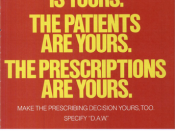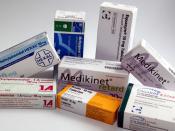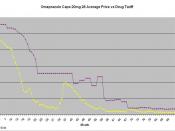"Supreme Court to Review Patent Settlements on Generic Drugs"
Restraint of trade is considered unenforceable and illegal, in the majority of cases, in the United States. In this particular article, we investigate a form of restraint used by pharmaceutical companies whereby they provide patent settlements to generic drug dealers in order to delay the sale of generic drugs - an identical good with the same effects, but a much lower price than branded drugs. The Federal Trade Commission argues that these settlements effectively deprive the public of billions of dollars in lower drug prices; however, the pharmaceutical companies counter argue that these settlements are in fact good for competition in the sense that they will allow generic drugs on the market before the patents for the branded drugs expire, while apparently removing the uncertainty of litigation for both sides. Although the case pertains mainly to the promisor, who are the pharmaceutical companies, the generic drug makers also argue the FTC's position in having the Supreme Court revise this situation as it "would have a tremendously detrimental impact on the availability of generic alternatives in the marketplace."
The FTC also points out that Solvay, one of the pharmaceutical companies, bought itself years of drug exclusivity by paying the generic drug companies tens of millions of dollars annually to stay out of the market until 2015, "by which time Solvay planned to shift patients to a new drug with no generic equivalent." To counter this position, both Solvay and the generic drug makers said that although the market entry date was in 2015, the patents for Solvay would not have expired for another 5 years, in a way lightening the seriousness of the case. To the FTC's dismay, there was only limited success in challenging these patent settlements: for the case based...


